How to Write a Darn Good Query Letter

Guess what’s the most important thing you’ll ever write. Nope. It’s not your novel. Good guess, though.
I’ll just spill the beans: it’s your query letter. If you’re hoping to secure a traditional publisher for your next great American novel, you’ve got to write the best darn query letter ever.
That query letter stands between you and your traditional publishing dreams. So, if I may borrow the next few minutes of your life, let’s discuss what a query letter is, why it’s so important, and how to write one that makes all of your hopes and dreams come true (or, at least, gets you started in the right direction). Ready? Let’s do this!

What’s a query letter?
A query letter is a one-page letter sent to literary agents in an effort to get them excited about your book. You have one page and 300 words (or less) to woo a literary agent into falling in love with your story and then requesting your manuscript.
This letter is short, sweet, and definitely to the point.
Your mission, if you choose to accept it, is to squeeze the essence of your 80,000+ word book into approximately 300 words. Talk about mission impossible!
Aside from the near constant rejection we writers face, crafting the perfect query letter is the hardest part of authorship.
In essence, a query letter is a marketing page that talks up your book, without overselling it. You must walk a very fine line between selling your manuscript without coming across like the parent who knows his kid is the best player on the bench.
Easy, right?
Don’t worry—we’re going to get through this together.
Sometimes seeing is believing, so here’s a printable template to help you strategize the perfect query letter. Subscribe to receive this extra resource.
How to write a darn good query letter
+Do follow the tried and trusted formula. Your query letter is not the time to get cute. There’s a very specific standard for query letters that you should not deviate from, when possible. Here it is:
Format with your address at the top of the page, right justified. Next, type the agent’s address, this time left justified.
Use a personalized greeting where you acknowledge the agent by name.
Keep the body of your query letter from three to five paragraphs.
Paragraph #1: This is your opportunity to hook the literary agent. Share any connection you have with the agent (you met him or her at a conference, or you’re a fan of specific authors that he or she represents).
If you don’t have a specific connection with the agent, you should get immediately into the action. The job of this first paragraph is to keep the agent reading.
In this paragraph, share the title and genre of your book. This is also a great place to include your book’s word count.
That’s right-- always include your word count-- this is one of the most important information tidbits in your query letter.
Here are my favorite opening lines from query letters submitted to Writer’s Digest:

Query letter for FALLS THE SHADOW. Read more here.
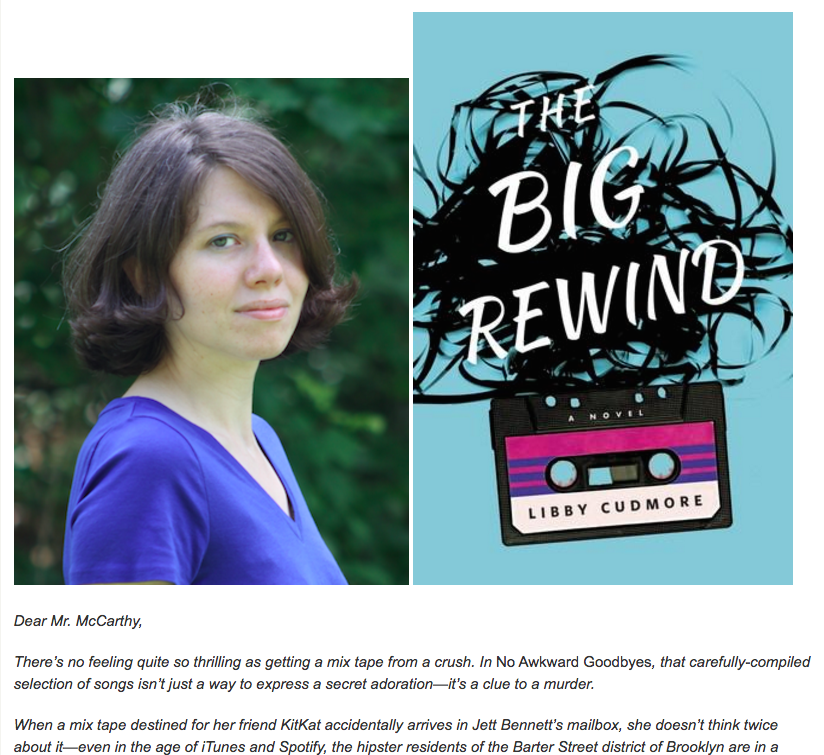
Query letter for The Big Rewind. Read more here.
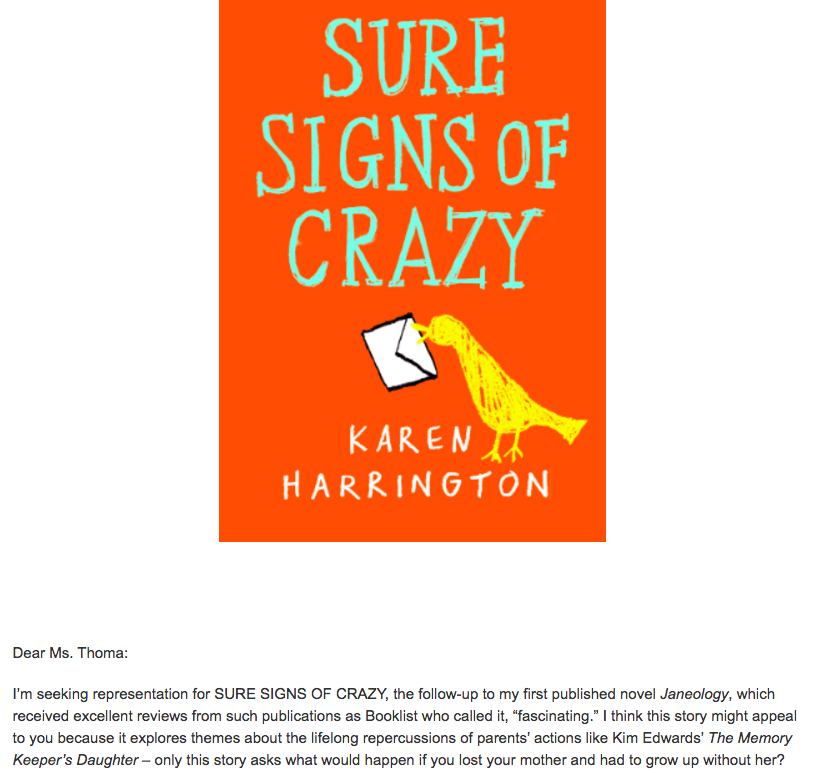
Query letter for Sure Signs of Crazy. Read more here.
Paragraph #2: Now that you’ve hooked the agent, it’s time to summarize your story. Discuss your main characters, what happens, and what choice they must make now. But don’t give away the entire plot. Leave the agent wanting more by structuring this paragraph in a cliffhanger.
Paragraph #3: Add your bio, but make sure it’s relevant to writing. Impress your agent with writing awards and credibility (you attend a yearly conference), or related writing experience. Keep it short (no more than two sentences).
Remember with a query letter, you don’t need to reinvent the wheel.
+Do use short paragraphs and short sentences, when possible. Imagine this: your letter is one of hundreds that your potential agent must read through this week. Between you and me, they’re probably skimming quite a few of those letters. Make it easy for them to skim through your letter by employing crisp, easy to digest sentences.
+Do use a similar tone to your narrative. Your query letter should evoke the same tone as your novel. Mirror the same language that you use in your book. Is it funny? Inject some of that humor into your query letter. Is it flowery? Use ornate and elegant language to sell your story. But be careful with wordiness. (See above.)
+Do follow submission guidelines. Be careful about sending off a query letter blitz without reading individual guidelines. Not every agent wants the same things. Some may only accept email submissions while others accept both.
The good thing is, they will always spell it out for you. Observe (no endorsement implied) :
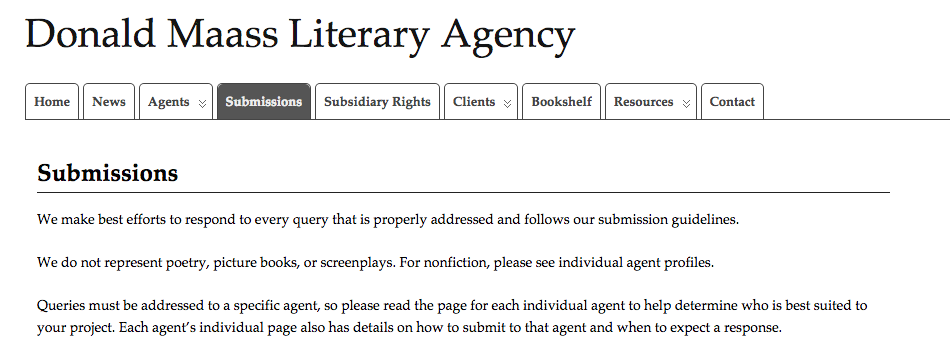
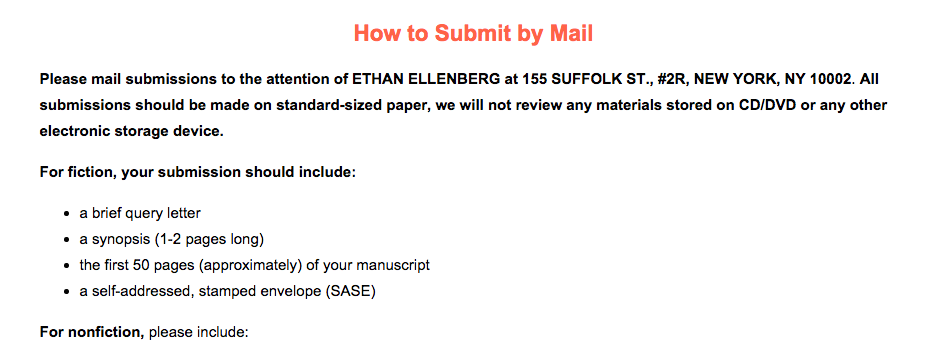
Ethan Ellenberg Literary Agency
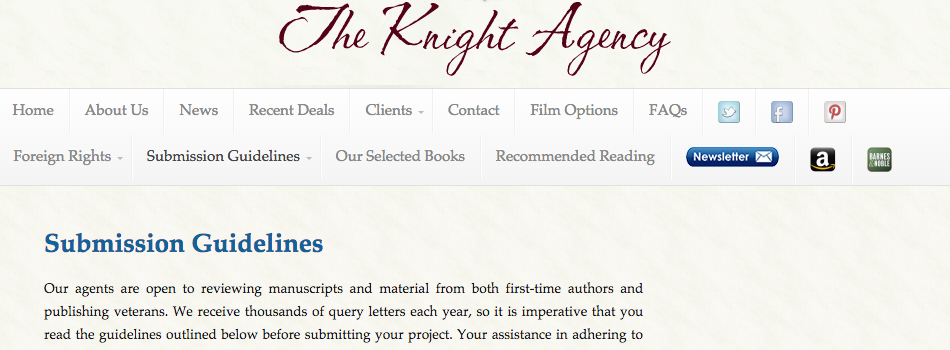
+Do address each specific agent. There’s nothing more newbie-ish than using a “to whom it may concern” address. This shouts, I’m sending this query letter to every single agent on the eastern seaboard. And, while that’s probably the case, you’ll miss a valuable opportunity to engage the agent (or his assistant) by simply saying his name.
Also, if possible, throw in why you’re pitching your book to that particular agent. Perhaps he or she represents other authors you love or represents the same genre as your book. Don’t hope for the agent to connect the dots—bring it up so it’s clear immediately.
+Do mention that your book has been reviewed by a professional editor. Agents love a polished manuscript. They notice writers who’ve taken the extra step of getting their manuscript edited by a professional. This makes the writer appear more professional and serious, and will definitely add more weight to your query letter. Check out our services page for more information on how we can help you.
Finally, the key to querying agents is volume. Two or three queries will rarely hit the mark. To find the right agent at the right time, you often need to send out a lot of query letters. As you'll see below, some of the greatest literary minds had to deal with rejection. A shadow would be cast over the literary world had they given up on their dreams.
Agatha Christie — 5 years of continual rejection. Her book sales are now in excess of $2 billion.
JK Rowling — 12 rejections until the eight-year-old daughter of a Bloomsbury editor demands to read the book. The rest is history.
Jack Canfield and Mark Victor Hansen — 140 years of rejection. Chicken Soup for the Soul sold 125 million copies.
Margaret Mitchell — 38 rejections. Gone with the Wind sold 30 million copies.
The list goes on.
How not to write a darn good query letter
-Don’t go beyond one page. Brevity is your friend. Actually, it’s rude to go over one page in a query letter, not to mention unprofessional. Most literary agents will not even consider a query letter with more than one page (or front and back).
-Don’t oversell it. Don’t let the following sentences into your query letter, no matter how proud you are of your masterpiece:
- Get ready to read your next best-seller
- This book belongs with treasured classics
- You’ll kick yourself if you pass this one up
Here’s why you don’t want to do it: it’s bad taste, and it’s already implied. Why else would you shop your manuscript if you didn’t think highly of it?
Instead of tooting your own horn, let your work sing for itself.
-Don’t self-deprecate, either. Starting out your query letter with a self-defeating phrase like, “I hope I’m not wasting your time,” is a big red flag to most agents. It makes the agent think, if this person doesn’t believe in his book, why should I?
Always face every query with undeniable optimism, even if you’re denied. Expect that this agent will say yes because your book is awesome, and waiting to be discovered.
-Don’t forget your SASE. Unless you’re emailing your query or expecting an email back, you need a self addressed stamped envelope (or SASE for short). Check with the submission guidelines for specifics.
-Don’t mistake your bio for a memoir. You have about two sentences to turn the spotlight on yourself. This isn’t the time to talk about your childhood in the south of France unless it is relevant to the novel you’re pitching. In fact, the only thing you should discuss about yourself is if there’s a personal connection or expertise that you have related to the content of your manuscript.
-Don’t handwrite or use strange fonts in your query letter. There are people who still use pen and maybe even pencils. This is not the time for either of those utensils. A query letter should be typed with a standard font. Use either Times New Roman or Arial, but do not, dear reader, use Comic Sans.
Use this:
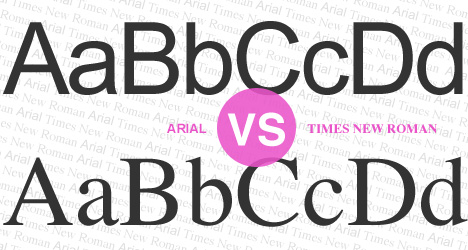
Not this:
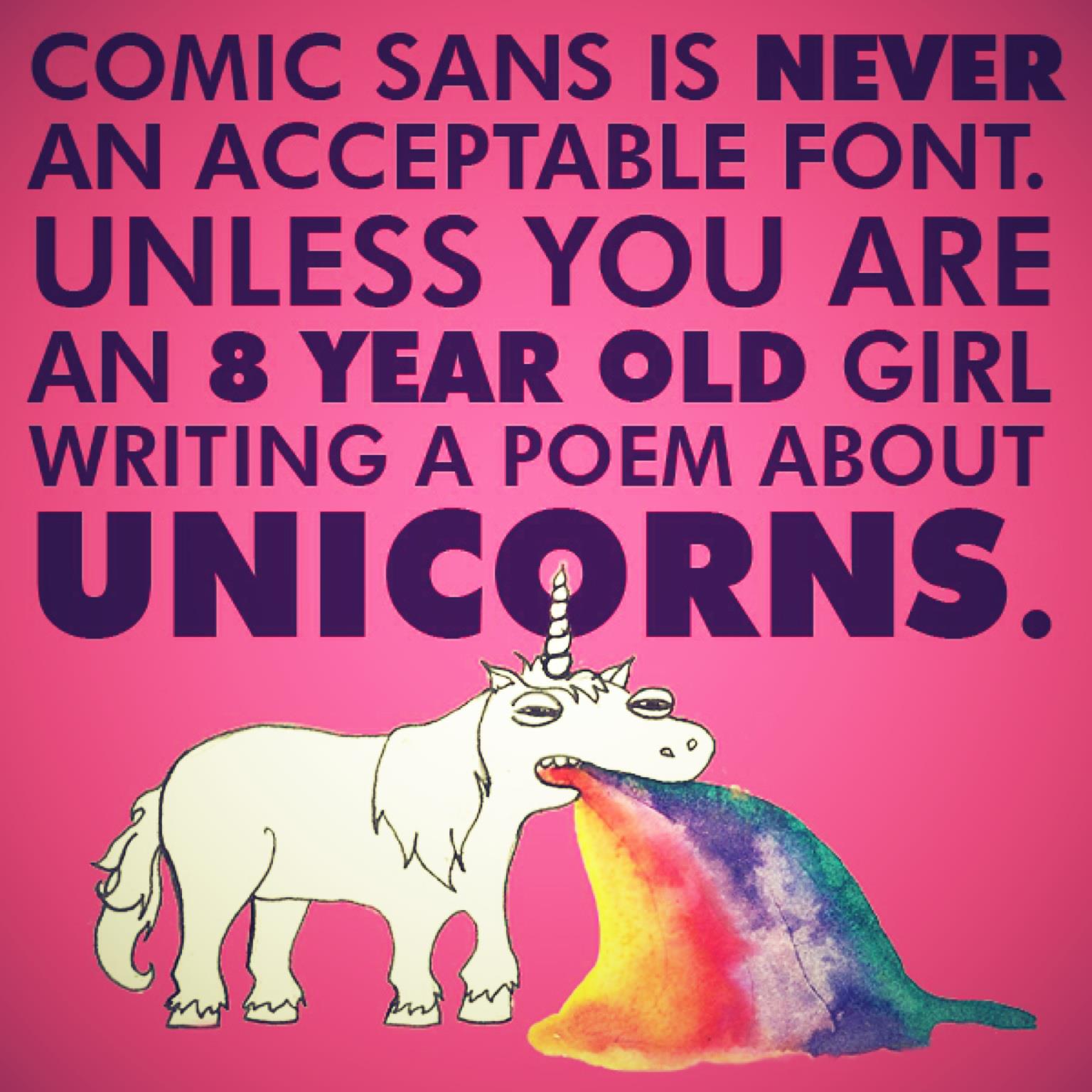
Author Unknown
Keep the font size to 12 pt and the textcolor should be black. Also, use white paper. I know it’s boring, but this is what’s expected. Anything else will seem amateur, at best.
Sometimes seeing is believing, so here’s a printable template to help you strategize the perfect query letter. Subscribe to receive this extra resource.
Final Thoughts
As a new author, you may be obsessed with finding an agent who will help you publish your manuscript. And, in order to accomplish this, you know that you need an impressive query letter. Putting this together might feel even more daunting than authoring your novel, but it doesn’t need to cause panic! Use the tips in this post to get your query letter noticed on a busy literary agent's desk.
[NEW UPDATE] A MUST-HAVE TOOL FOR LITERARY AGENT RESEARCH
If you're stuck in the morass of researching agents by checking Twitter, Publisher's Marketplace, agent wishlists and interviews, we have some exciting news.
Your days of scrolling for useful pieces of information are over!
Literary Agent Alert is an easy way to find out when an agent is looking for a manuscript like yours.
Every week, you'll get a newsletter that aggregates all mentions by reputable agents who are looking for a book in your genre.




